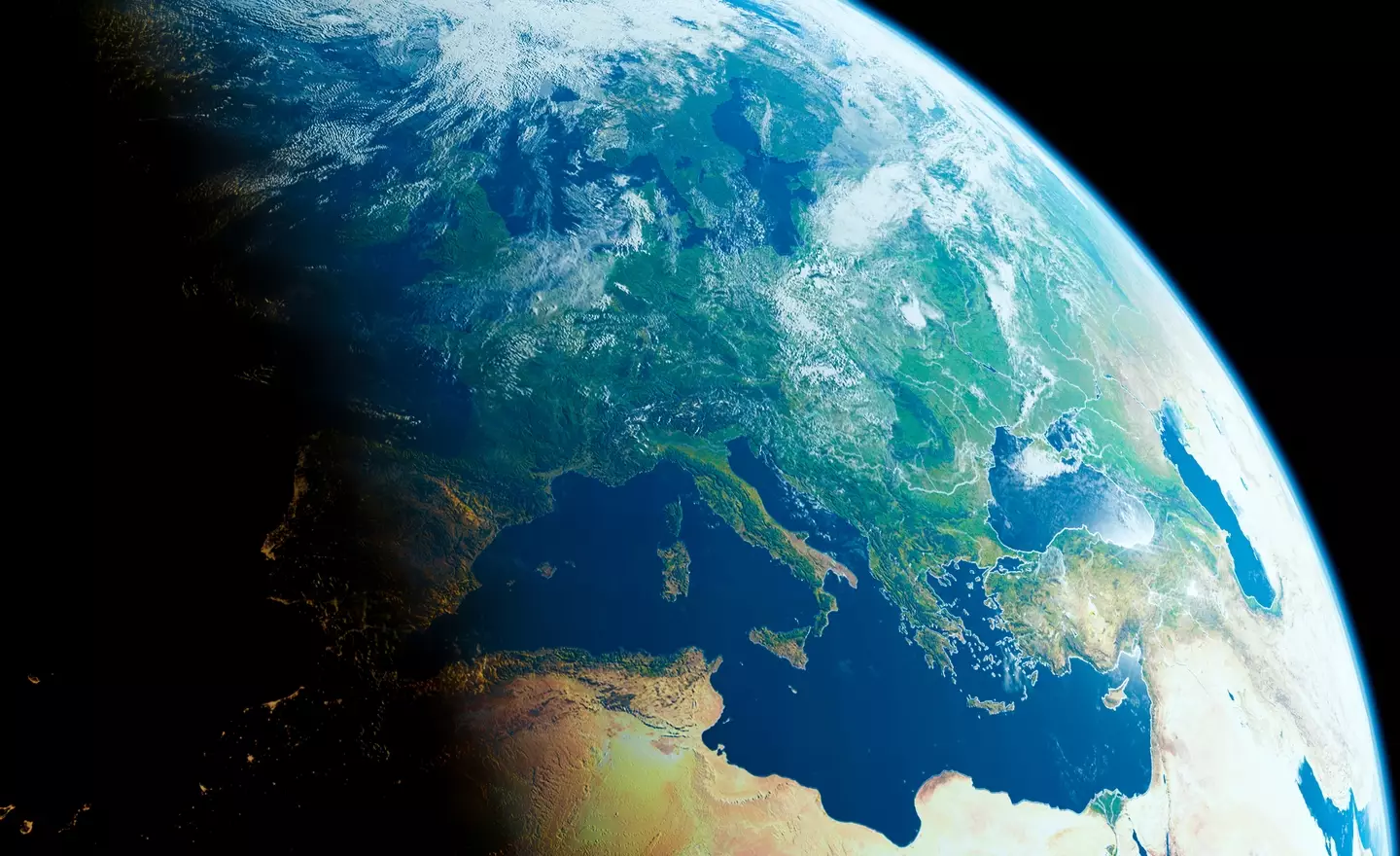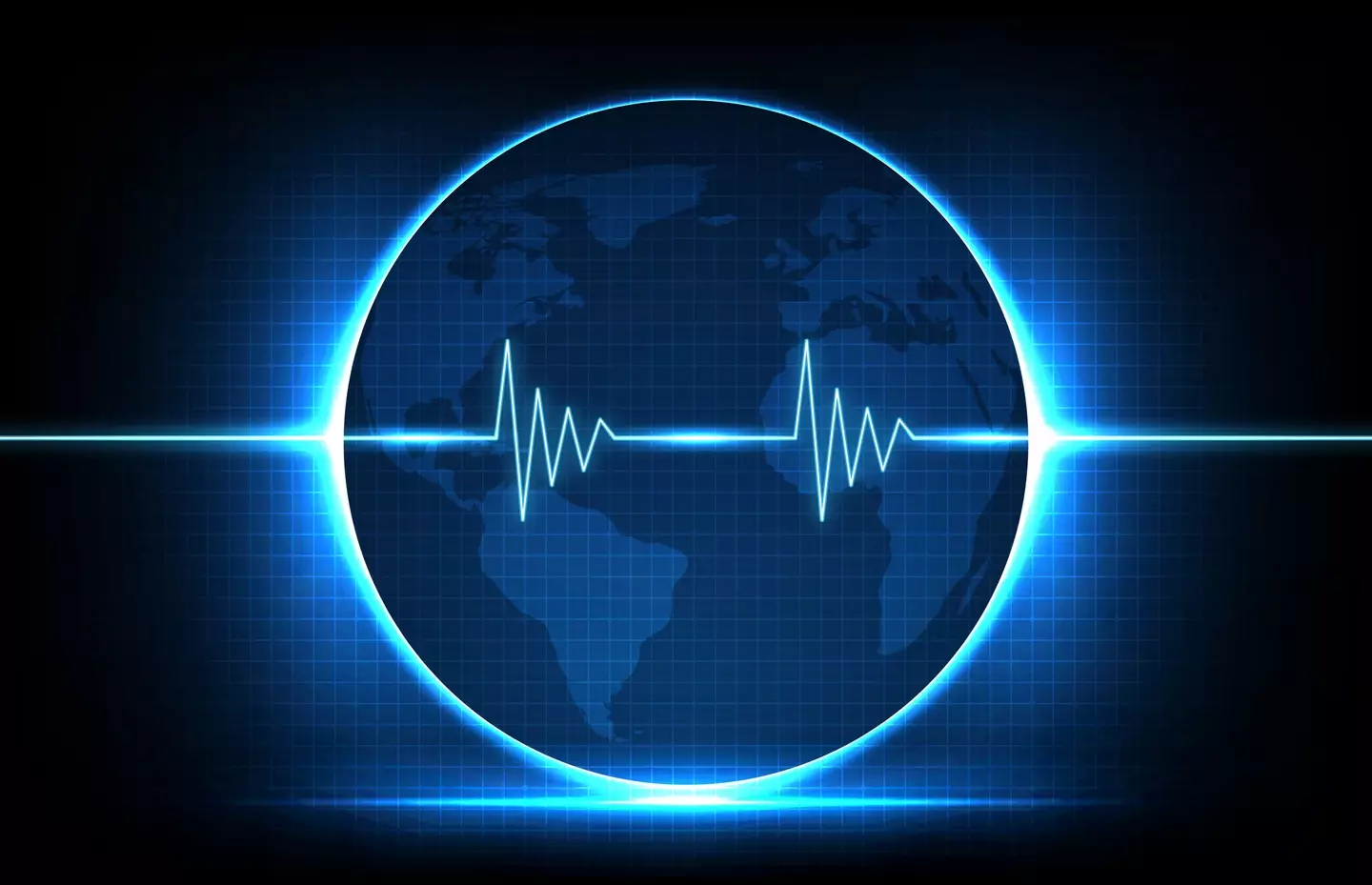
Scientists have detected a rhythmic 'heartbeat' occurring in the centre of the Earth.
It's not big enough to be felt like an earthquake, but it's noticeable enough for seismologists around the world to pick up a tiny, measurable ‘blip’ on their radars. Referred to as a 'microseism' by geologists, the pulse was first observed coming from the ocean and occurs roughly every 26 seconds.
It’s been quietly pulsing for decades, but scientists aren't entirely sure what’s causing it.
Researcher Jack Oliver, then at the Lamont-Doherty Geological Observatory, was the first to document the pulse in the 1960s.
Advert
While studying seismic activity, he tracked it back to somewhere 'in the southern or equatorial Atlantic Ocean,' According to Oliver, it was stronger in the Northern Hemisphere's summer months (or the Southern Hemisphere's winter).

Bear in mind, this was back when there was no fancy tech equipment.
“Jack didn’t have the resources in 1962 that we had in 2005 — he didn’t have digital seismometers, he was dealing with paper records,” explained Mike Ritzwoller, a seismologist at the University of Colorado, whose team would come across the strange pulse some decades later.
In 1980, Gary Holcomb, a geologist with the U.S. Geological Survey, added to the findings when he discovered the pulse is strongest during storms.
Then, in 2005, Greg Bensen - a graduate student at the University of Colorado Boulder - was reviewing seismic data when his advisor walked in and asked to see what he was working on.
Ritzwoller recalled that Bensen pulled up some data and there was the repeating, far-away blip. “As soon as we saw this, [then-postdoctoral researcher Nikolai Shapiro] and I recognised that there was something weird, but we had no idea what it was,” Ritzwoller added.
Examining the blip from every possible angle, the team traced its origins to a spot in the Gulf of Guinea, just off the coast of West Africa.

They published their findings in 2006, but even now, no one knows what’s behind the steady beat. Some believe it’s tied to waves crashing on the seafloor, while others think it might be related to volcanic activity. Nevertheless, experts have determined that our planet is always making noise of some form.
“Seismic noise basically exists because of the Sun,” said Ritzwoller. The sun heats Earth unevenly, warming the equator more than the poles. This imbalance drives winds, ocean currents and waves that can cause land vibrations when they crash into coastlines.
Scientists can use this 'seismic noise' to study the inside of Earth. “But the observation of [the pulse in 2005] caught us by surprise,” continued Ritzwoller.
“We’re still waiting for the fundamental explanation of the cause of this phenomenon."
He concluded: “I think the point [of all this] is there are very interesting, fundamental phenomena in the earth that are known to exist out there and remain secret.” It may just be up to future generations to uncover it.